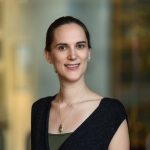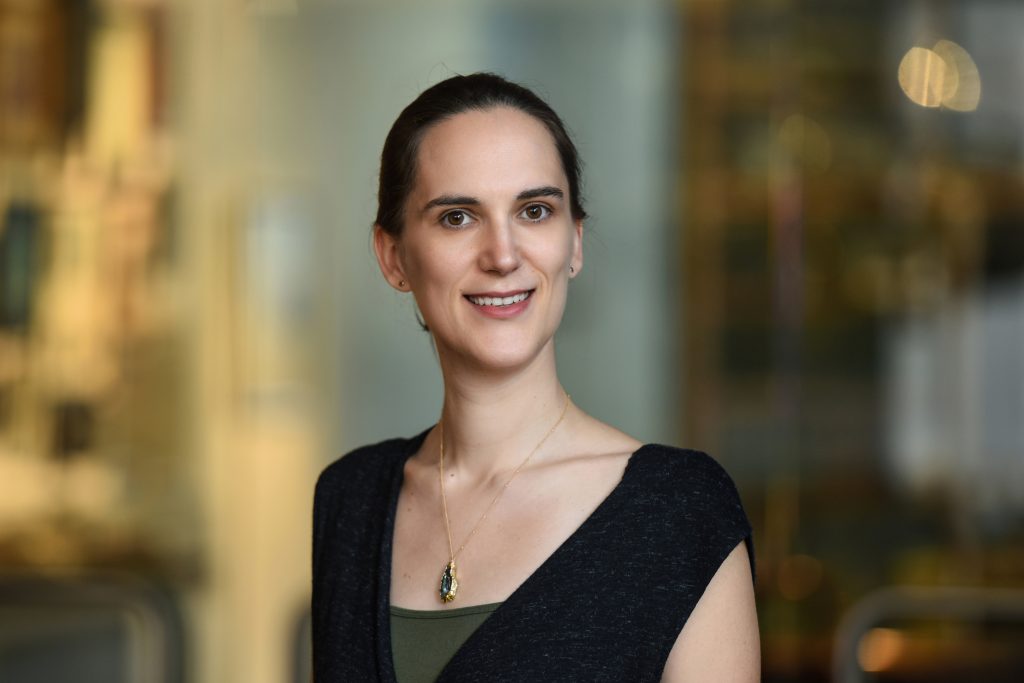We’re taking time over the following weeks to get to know the members of the GSA’s Early Career Scientist Committees. Join us every week to learn more about our 2019 early career scientist advocates.

Early Career Scientist Steering Committee
Baylor College of Medicine
Research Interest
I’m interested in delineating the cellular and molecular functions of genes to understand why the loss of a gene results in a particular genetic disorder. The hereditary disorders I am currently studying affect the human skeletal system. Although the bones that form our skeleton appear to be stable, unchanging tissues, they are in a constant state of remodeling in which old bone is broken down and replaced with newly formed bone. Even a slight imbalance between the cells that break down the bone (called osteoclasts) and those that build it back up (osteoblasts and osteocytes), or an imbalance in the progenitor cells that give rise to these cell types, will cause a person to have less or weaker bone.
I am studying the cellular functions of several genes that, when lost, cause Osteogenesis Imperfecta (OI), otherwise known as brittle bone disease. In humans, OI is a debilitating hereditary skeletal disorder characterized by low bone mass, skeletal fragility, and several extra-skeletal features. I’m combining the power of genetics with a recently developed intravital imaging technology and next-generation sequencing to understand how the loss of OI-causing genes impacts bone formation. I hope my work will identify the molecular function of these genes and that it will reveal novel targets that scientists can eventually translate into the development of new and better treatments for OI.
As a PhD-trained scientist, you have many career options. What career paths interest you the most?
I am most interested in career opportunities within the scientific community that allow me to positively impact our society as well as my immediate environment. Ideally, I see myself running my own lab in an academic institution, focusing on basic research to understand mechanisms of disease and identify novel directions for treatments. I enjoy the problem-solving aspect of being a scientist, optimizing experiments and piecing together various scientific observations to understand what is happening at the cellular or molecular level.
In addition, I find it incredibly rewarding to mentor early career scientists, passing on my knowledge to help peers develop their strengths while receiving their input for my own personal development. I have been fortunate to find incredibly supportive mentors along my path, who pushed me to excel in my strengths and showed me how to improve my weaknesses. These mentors have taught me invaluable lessons that have guided my own personal and professional development. They have also instilled in me a passion to share these lessons.
I have traveled several paths during my educational and professional career. These experiences have taught me that adaptability is the key to success and happiness. My main goal is to leave a positive mark on the well-being of my environment, as well as our society, whether that’s by discovering the pathogenic mechanism of a disease gene, by training the next generation of scientists, by writing about new discoveries, or by entering a new direction. I know that I will thrive as long as I can be part of a vibrant environment where I am surrounded by a group of people with similar drives, in a setting where every individual can apply their strengths and share their expertise.
In addition to your research, how else do you want to advance the scientific enterprise?
I want to contribute to the scientific community by promoting responsible behaviors such as transparency, improved communication, and reproducibility. The scientific community is facing an increasingly difficult challenge: teaching society to distinguish well-conducted research from poorly-executed, sensational studies that cannot be replicated. This issue has led to increasing skepticism among the public and is starting to negatively impact evidence-based decision making. We can increase trust in scientific research by changing the scientific culture in two ways: (1) improving communication with the non-scientific community to increase scientific understanding and (2) improving scientific methods and scientific reporting to increase reproducibility.
To contribute on both fronts, I joined the eLife Community Ambassadors Program. The ambassador program consists of a group of approximately 240 early career scientists who are developing initiatives to improve various aspects of academic culture. More specifically, I am developing an initiative that is trying to improve the “readability” of a paper. Along with a handful of other motivated ambassadors from all around the world, we are developing novel ways to package and present data in a manuscript by improving its graphical representation as well as its description within the text.
As a leader within the Genetics Society of America, what do you hope to accomplish?
I hope to create a more positive and stimulating environment for early career scientists who are about to take the next step in their career. In the last five to 10 years, we have seen a big push to support early career scientists in developing their skills and preparing for the next phase. Compared to 10 years ago, graduating PhD students or postdocs entering the job market now have a much better idea of their career options.
Many institutions now have career development centers where professionals support early career scientists in developing their professional skills and coach them along the path to reach their career goals. Despite this improved support, many early career scientists’ are still not confident in their ability to make the jump to their dream positions.
In a crowded field where a large number of life science PhDs are graduating and competing for a limited number of positions, the numerous challenges that face an early career researcher can seem insurmountable. As a result, most early career scientists don’t think their hard work and sacrifices can lead to their desired job opportunity. My goal is to provide the next generation of scientists with more opportunities for career development and to inspire them to be undeterred by the challenges along the path to their dream job. One way of realizing this goal is by helping to develop new initiatives, such as the early career scientist seminar series, which provides an online platform for early career scientists to share their work with the scientific community. I would also like to broaden the scope of GSA’s Decoding Life series.
Previous Leadership Experience
- Community Ambassador — eLife
- Co-chair — 2019 Gordon Research Seminar in Myogenesis
- President, 2008–2009 — Biomedical Sciences Student Society for Quality Education, KULeuven, Belgium































